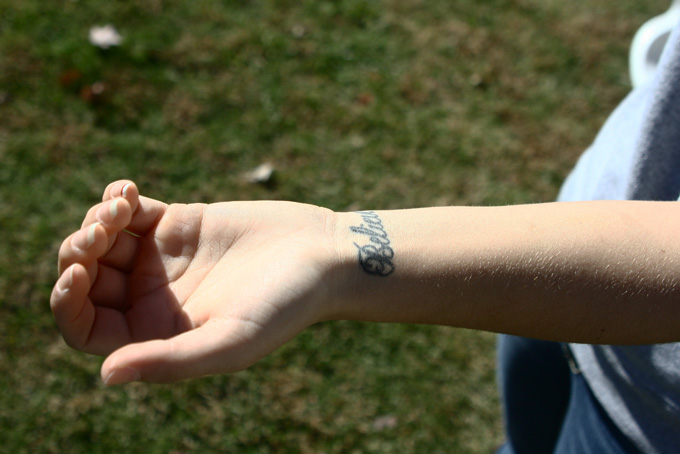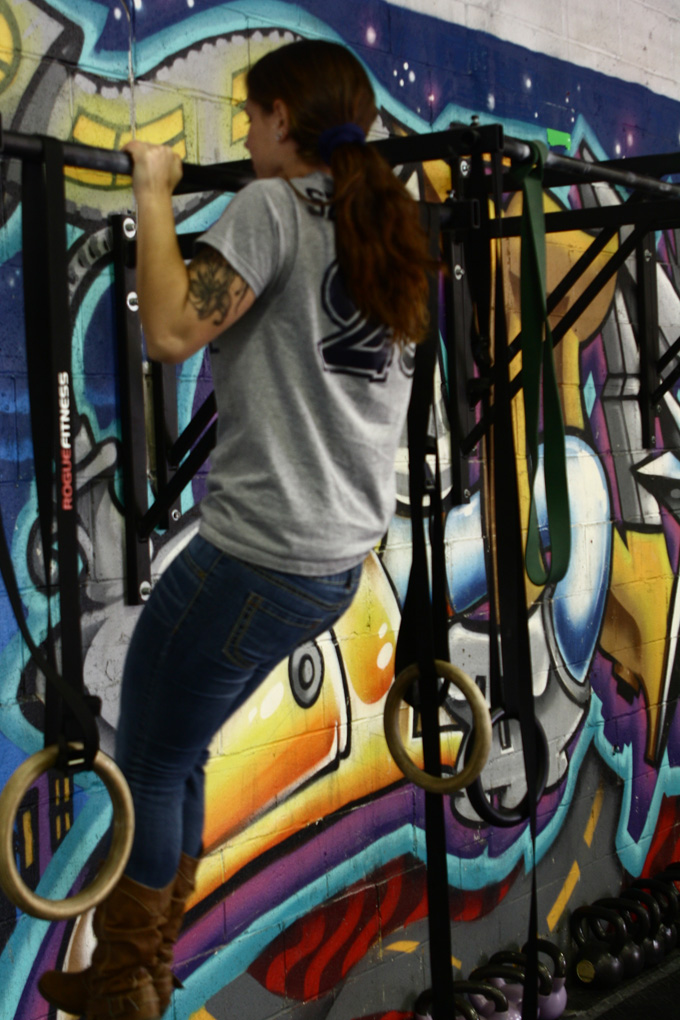
Sarah Szczypinski’s wrist tattoo was approved before the new Army policy that bans tattoos below the knee or elbow came into effect. (Photo by Alexandra Kanik/PublicSource)
Higher standards
The Pentagon estimates that 75 percent of 17- to 24-year olds are not eligible to serve in the military. Those who are often find roadblocks in higher standards.
Owen Craig, the Marine recruit who worked farm and factory jobs near Lewistown, said he waited 15 months to be sworn in, all because of a dragon tattoo on his leg that led to a lengthy waiver process.
Enslow, the Navy recruit, said he was told his high debt-to-income ratio disqualified him for a job. “My conclusion is I would be seen as too much of a national security liability,” he said.
He was eventually assigned to nuclear-power maintenance.
By Jan. 1, female Marine recruits will find higher physical requirements. They must be able to complete three pullups, equal to male Marines and an increase from the 15-second flexed-arm hang that was the standard for them before.


Lt. Col. Michael Fenimore, Air Force commanding officer of the 314th recruiting squadron, which covers eastern Pennsylvania, said it’s vital that recruits meet a certain aptitude.
“We are a profession of arms, and we need to know people serving next to us meet those qualifications,” he said.
The military is upping its recruiting game, too. The Navy now hires Fortune 500 companies to teach sales to its recruiters, Avery said.
Army Sgt. Andrew Parkerson and his recruiting team based in the Monroeville Mall added a live-scan fingerprint machine to the office in 2011 to thoroughly check criminal records, and they use a 200-question medical screening to see who might be qualified.
The sergeant has seen a broken toe raise red flags.
“We don’t fix people with injuries and we don’t rehabilitate people with the law,” he said. “We’re going to take people who are qualified to be a soldier … I’m proud of the fact that people aren’t qualified for the Army.